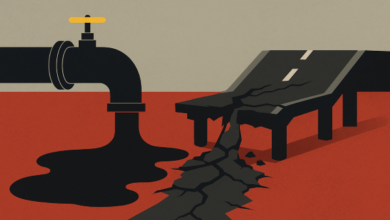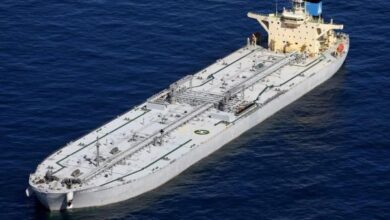NPA Elevates 1,500 Staff in Historic Promotion Drive, Signals Shift Toward Maritime Workforce Renewal

In a bold move to rejuvenate workforce morale and deepen institutional capability, the Nigerian Ports Authority (NPA) has promoted 1,500 employees, effectively clearing a backlog of stalled career advancements that had long stoked industrial unrest across the nation’s port system.
This milestone, confirmed by the NPA’s General Manager, Corporate & Strategic Communications, Mr. Ikechukwu Onyemekara, follows a sweeping human capital reform strategy approved by the Minister of Marine and Blue Economy, Alhaji Adegboyega Oyetola, and executed by the Dr. Abubakar Dantsoho-led NPA management team.
Breaking the Bottleneck: NPA Ends Over a Decade of Career Stagnation
The significance of this mass promotion extends beyond the sheer numbers. It marks the resolution of a long-standing employee stagnation crisis that had undermined staff morale, productivity, and union relations for over a decade.
“Talent development is not a luxury—it’s the lifeline of our port modernisation strategy,” said Dr. Dantsoho, noting that human capital is as critical as cranes, cargo scanners, or quay expansions in Nigeria’s quest for global port competitiveness.
The promotions, conducted via structured examinations and backed by timelines to prevent future recurrence, come as part of a multi-pronged strategy designed to realign the Authority’s workforce structure with international standards.
Maritime Labour Unions Applaud Reforms
The move has drawn rare praise from the country’s two major maritime unions—the Maritime Workers Union of Nigeria (MWUN) and the Senior Staff Association of Statutory Corporations and Government-Owned Companies (SSASCGOC)—both of which have historically clashed with NPA over staff welfare and employment policies.
“This is a new era of trust-building,” said Comrade Akinola Bodunde, President of SSASCGOC. “For the first time in years, we’re seeing structured responses to long-standing welfare concerns, including promotions, productivity bonuses, end-of-year packages, and a revised Financial Guide that reflects today’s inflationary realities.”
The unions particularly acknowledged the revisions to the Financial Guide of the Conditions of Service, which now better cushions workers against rising living costs—a critical step in retaining skilled talent in Nigeria’s increasingly competitive maritime labour market.
Port Competitiveness: Productivity Must Match Infrastructure
While the NPA’s recent efforts to modernise port infrastructure—ranging from dredging works to digital terminal operations—have been widely reported, Dantsoho’s latest emphasis on workforce rejuvenation signals a more integrated approach to port reform.
This aligns with the global shift toward “smart port” ecosystems, where technological transformation is inseparable from workforce transformation.
“Infrastructure alone doesn’t move cargo. People do,” said one maritime analyst. “The NPA has finally acknowledged that port productivity is not just about cranes and berth occupancy—it’s about motivation, performance culture, and equitable career progression.”
BRANDECONOMY Bottom Line: A Maritime HR Reset Worth Watching
The successful promotion of 1,500 NPA employees is not just a labour story—it’s a critical step in resetting institutional culture within one of Nigeria’s most strategically vital agencies.
By resolving one of the most persistent HR challenges in the maritime space, the Dantsoho-led management is laying the foundation for a more agile, skilled, and motivated workforce—a prerequisite for Nigeria’s ambition to become West Africa’s premier transshipment and logistics hub under the Blue Economy mandate.











